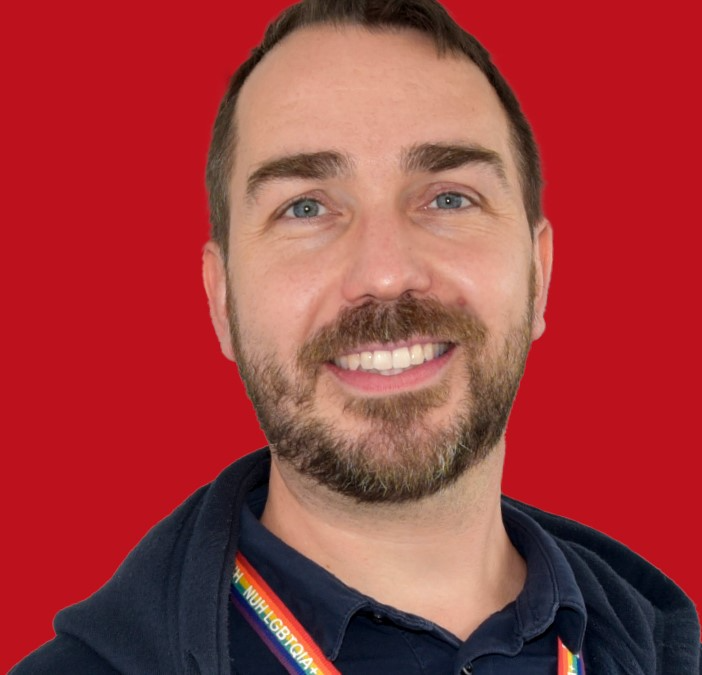Michael Pearson is an Improving Workplace Culture project manager, at Nottingham University Hospitals NHS Trust, and a CSP steward

I have not necessarily felt able to be open about my sexuality in my day-to-day being. Particularly when I started work back in 2005, I very much didn’t talk about my sexual orientation or acknowledge the fact that I had a partner. I just didn’t know how people would take it.
In hindsight it was probably my own prejudices. I didn’t necessarily expect people to take it in a good way just because of how homophobic society was at the time and what I’d experienced growing up, which made me very wary not to put any focus on myself.
I gradually got better at being open, and conversations would come up and I’d refer to my partner and acknowledge their gender, and, as I felt more psychologically safe within a team, I would maybe disclose more about us. But then, for example, as a rotational band 5 I’d move onto a new area, and I’d be in a new team with new people, and until you feel comfortable in that team you don’t necessarily feel you can be open again. So, it’s like starting that cycle again with the worry and anxiety of what people will think and needing to feel safe before you can be open and come out again.
I thankfully haven’t experienced any direct, face-on homophobia at work from staff or patients, but what I have witnessed a lot of colleagues, typically new younger staff, using 'gay' as a negative expression, such as 'that’s so gay'.
Initially I would ignore it, it wasn’t directed at me specifically, but it got to the point on one occasion that I highlighted this to one of my colleagues who was saying it loudly in a packed staffroom, but they pushed back as if I was over-reacting and minimised it by saying 'No, I don’t mean it in a bad way.'
Sadly, I didn’t feel raising this had any impact on that person and at the time I just thought ‘why should I bother?’. Thankfully I am now more self-confident in my identity so I do speak up and respectfully challenge behaviour like this whether it is in relation to sexual orientation or in allyship to stand up against microaggressions that impact other people.
There’s obviously a lack of understanding about the harmful impact of microaggressions: you might not mean to be offensive, but if you are using gay or words as derogatory terms, that has implications.
I think any campaign that helps to raise the awareness of both what microaggressions are and how they can affect others is massively important. All too often, through ignorance, we can get swept into saying things without thinking of their wider impact, possibly saying something in jest and not meaning any offence.
But what you can’t see is that the same derogatory comment, however insignificant it might seem in a one- off context, where it is seen as ‘banter’, is said time and time again and it wears people down, having real negative effects on mental health.
Microaggressions can sometimes lead to more bullying or harassment type behaviours – so nipping things in the bud and calling out microaggressions is vitally important.



































